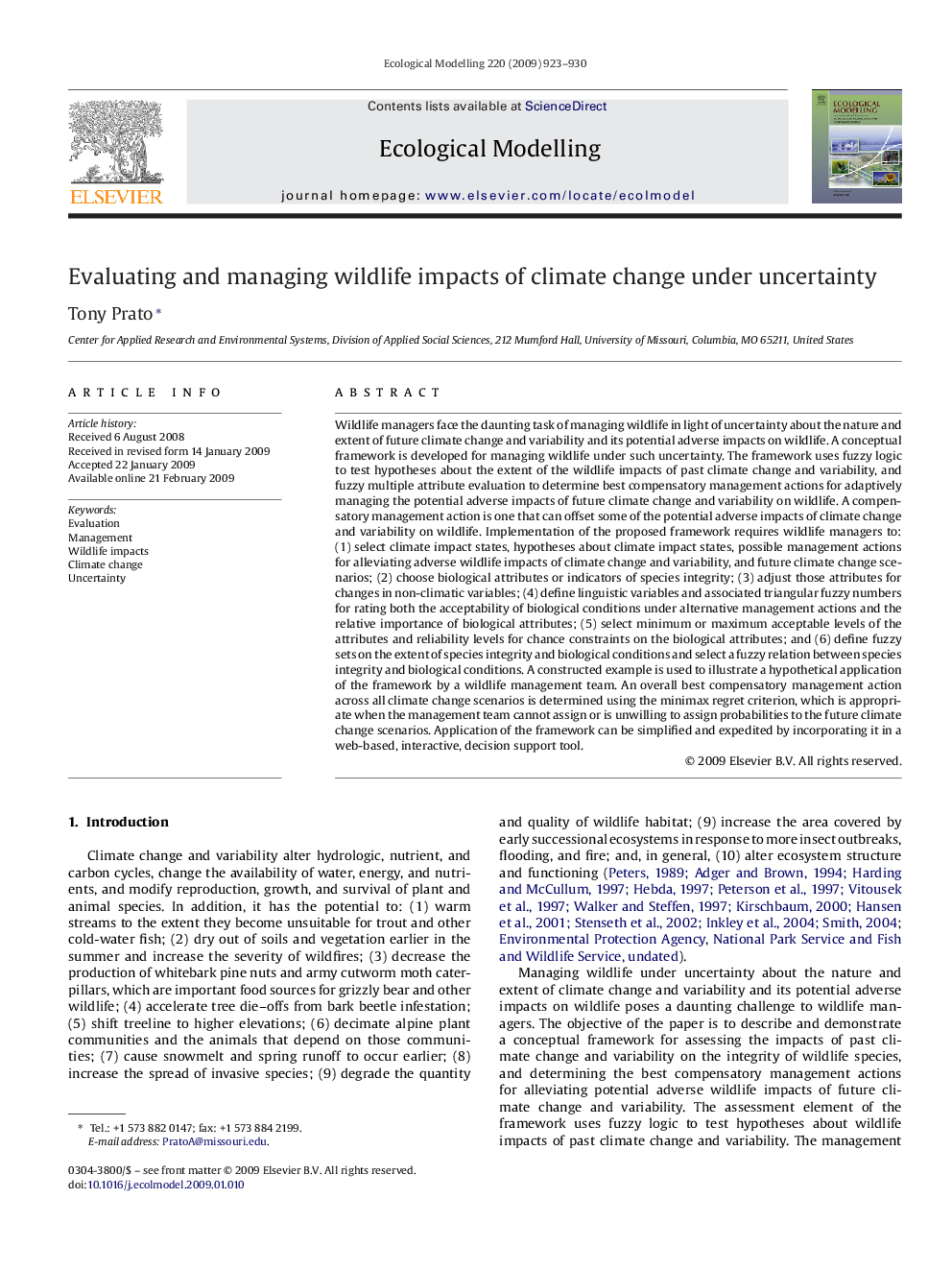| Article ID | Journal | Published Year | Pages | File Type |
|---|---|---|---|---|
| 4377596 | Ecological Modelling | 2009 | 8 Pages |
Wildlife managers face the daunting task of managing wildlife in light of uncertainty about the nature and extent of future climate change and variability and its potential adverse impacts on wildlife. A conceptual framework is developed for managing wildlife under such uncertainty. The framework uses fuzzy logic to test hypotheses about the extent of the wildlife impacts of past climate change and variability, and fuzzy multiple attribute evaluation to determine best compensatory management actions for adaptively managing the potential adverse impacts of future climate change and variability on wildlife. A compensatory management action is one that can offset some of the potential adverse impacts of climate change and variability on wildlife. Implementation of the proposed framework requires wildlife managers to: (1) select climate impact states, hypotheses about climate impact states, possible management actions for alleviating adverse wildlife impacts of climate change and variability, and future climate change scenarios; (2) choose biological attributes or indicators of species integrity; (3) adjust those attributes for changes in non-climatic variables; (4) define linguistic variables and associated triangular fuzzy numbers for rating both the acceptability of biological conditions under alternative management actions and the relative importance of biological attributes; (5) select minimum or maximum acceptable levels of the attributes and reliability levels for chance constraints on the biological attributes; and (6) define fuzzy sets on the extent of species integrity and biological conditions and select a fuzzy relation between species integrity and biological conditions. A constructed example is used to illustrate a hypothetical application of the framework by a wildlife management team. An overall best compensatory management action across all climate change scenarios is determined using the minimax regret criterion, which is appropriate when the management team cannot assign or is unwilling to assign probabilities to the future climate change scenarios. Application of the framework can be simplified and expedited by incorporating it in a web-based, interactive, decision support tool.
